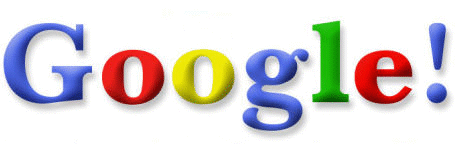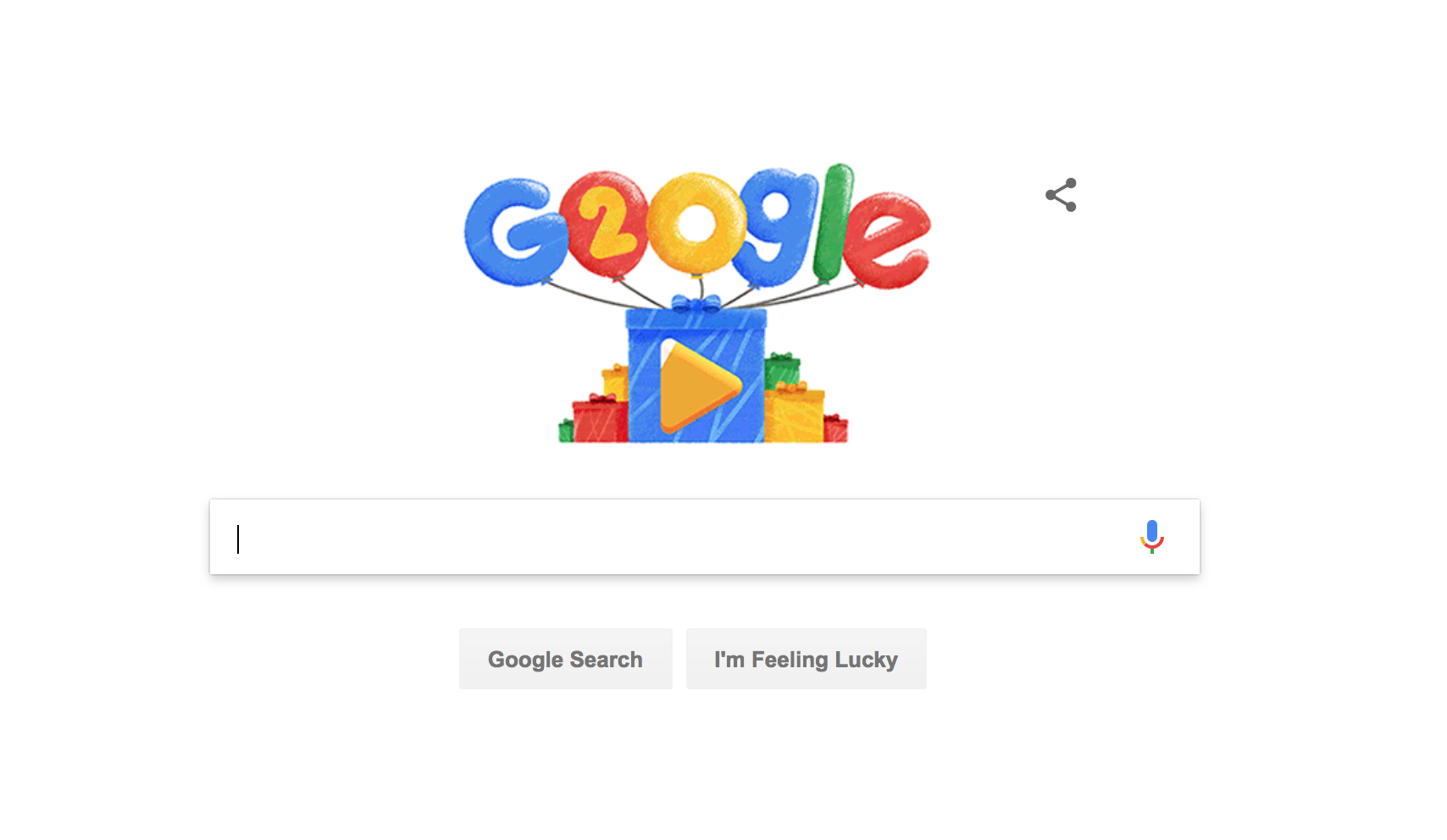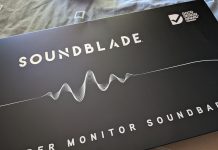What was your first Google Search? When did you do it? That’s the questions I’ve been thinking myself as Google celebrates their 20th anniversary of search this week. While Google doesn’t say exactly which date the search engine went online (it isn’t exactly clear), and while the company officially incorporated on September 4, 1998, it’s generally accepted that the 27th of September is the day – and the doodle today shows that they agree.
Across 20 years, and moving from indexing a ‘mere’ 25 million web pages to now billions of pages in over 150 languages in 190 countries, Google Search, the brainchild of two Stanford University students – Sergey Brin and Larry Page – has changed the world forever in their bid to achieve their mission to ‘organize the world’s information and make it universally accessible and useful’.
Primary Mission
Google Search has always focused on the user at its core, delivering the most relevant, highest quality information, sometimes tailored for you based on your history, as quickly as possible.
It’s all thanks to the vaunted Page Rank algorithm we’ve all heard about. That algorithm has changed a lot over the years as Google has worked on better ways to bring you search results from mundane subjects such as what’s the weather going to be, to more topical subjects including religion and politics. They provide useful information like where to vote, and how to get from point a to point b using some of their other products like Maps, but it all comes back to search.
Google sees billions of queries every day, and they say that 15 percent of queries are ones they’ve never seen before. These queries guide the changes to the algorithm, each change is meticulously tested though before being rolled out to the public.
Like their proclivity to name Android version names after tasty treats (Gingerbread, HoneyComb, Lollipop, Pie etc.), and Android devices after fish (Herring, Shamu, Soju, Mantary etc.) their search algorithm updates have been named such delightful names as Panda, Penguin and Pigeon.
The Google Page, Logo and Doodles
The Google Search page has changed a little over 20 years, but not much. It’s still mostly white with a search box, and two buttons on it ‘Search’ and ‘I’m feeling lucky’ (which simply takes you to the first search result). There’s a bit more around the edges, but it’s still very nicely flat and doesn’t distract from your main goal of searching.
The Google Logo has changed a little over the years to the flatter logo we know and love today.

While it hasn’t changed a huge amount, we’re all intimately familiar with the Google Doodles that take over the homepage and replace the Google logo with something fun that represents either something going on at Google or an important event in history. The first Google Doodle was put up when the Google team took off to attend the Burning Man festival in Black Rock Desert in Nevada. Since then there’s been over 2000 doodles added to the Google homepage.

Google launched an Australian specific home page in 2002 on the google.com.au domain, four years after the main site launched. Of course the Google team has launched a number of Google Doodles over the years celebrating, commemorating and memorialising events, people, places and topics that have been important to Australians.
There’s a whole blog devoted to the Google Doodles, giving a brief run down of the creation of the doodle – this is where you can even find the PacMan Doodle that immortalised the 30th anniversary of the game back in 2010.
Where to from here?
Google is an ever-changing entity when it comes to search. The company is incorporating Artificial Intelligence and Machine Learning into their back-end in order to deliver the results you need, fast.
Better search results
Google has announced some new updates that are helping to drive better search results including letting you resume tasks like search where you left off. Google will show you an activity card of results from a previous search. You can revisit a search you’ve done in the past with a list of relevant pages you’ve already visited and previous queries you’ve already performed. Google also groups search results into Collections, and introduced a new dynamic way to organise search results offering tabs for the most common and relevant subtopics associated with that.
Google Feed to Discover
Google has also announced that they’re changing the Google Feed to Discover, focusing more on the discovery of content. This enables them to surface information relevant to your interests even if you haven’t searched for that topic. It’s not just new content, you may see older content that’s relevant based on recent searches or what you’re reading.
Images
Lastly, Google is shifting from text to a more visual way of finding information. They’re offering more visual content in Search and Google Images including stories including AI generated AMP stories featuring notable people—like celebrities and athletes. Google will also automatically show you video content related to your searches, showing most relevant videos for those subtopics.
Google has also tweaked their algorithm for Google Images to rank results that have both great images and great content on the page. They’re also showing more context around images in results, including captions that show you the title of the webpage where each image is published.

Google is also improving Google Lens, utilising the built-in AI to better show you images when you search for things using Lens. You can even highlight part of a page to trigger results based on that.

Happy Birthday Google
So if you’re a fan of what Google does, it’s time to celebrate their 20 years in search. You can check out the homepage today for their latest Doodle, which turns into this look at the last 20 years of search:














I had no idea. And only 20 years?! Wow. I wonder what my first search was. Interesting article. Glad I found it as I now use DuckDuckGo and may never have known.
Pretty sure my first search in the 90’s was ‘video game cheats’.